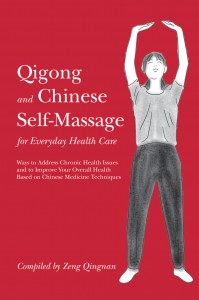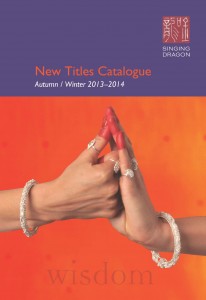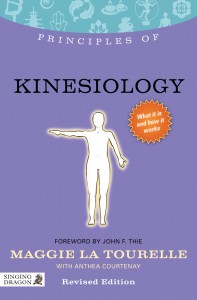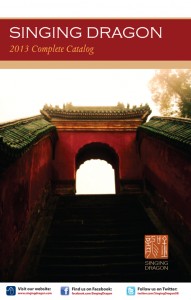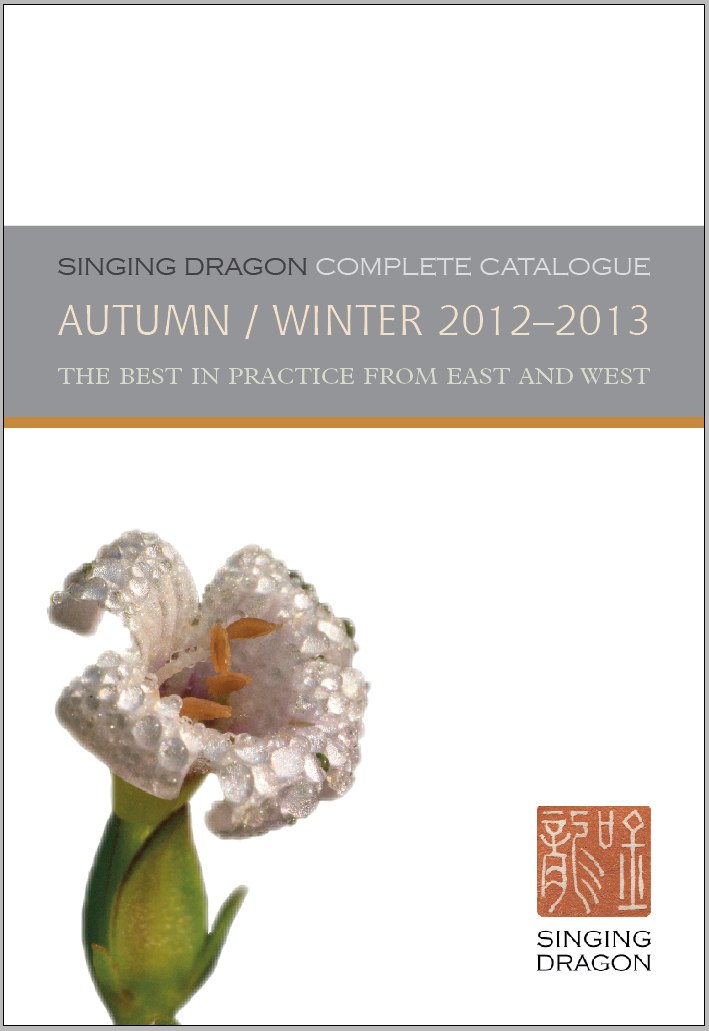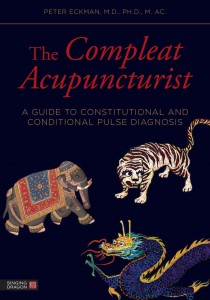 When people look at the beautiful cover of Peter Eckman‘s new book, most think that the printers have made a terrible, embarrassing mistake. They have not. In the dedication of The Compleat Acupucturist, Eckman apologises for “stealing” the title from Sir Isaak Walton’s The Compleat Angler. In 1653 Walton wrote:
When people look at the beautiful cover of Peter Eckman‘s new book, most think that the printers have made a terrible, embarrassing mistake. They have not. In the dedication of The Compleat Acupucturist, Eckman apologises for “stealing” the title from Sir Isaak Walton’s The Compleat Angler. In 1653 Walton wrote:
in this Discourse I do not undertake to say all that is known, or may be said of it, but I undertake to acquaint the Reader with many things that are not usually known to every Angler; and I shall leave gleanings and observations enough to be made out of the experience of all that love and practise this recreation, to which I shall encourage them. For Angling may be said to be so like the Mathematicks, that it can never be fully learnt; at least not so fully but that there will still be more new experiments left for the trial of other men that succeed us.
In the following apologia (not apology) taken from the book, Eckman explains how this treatise on integrating the various disciplines of Oriental medicine into a whole coherent model, with pulse diagnosis as a common thread across different traditions, uses the same spirit of acquainting the reader with things not usually known.
APOLOGIA1
The archaic language of the title is intended to convey the author’s somewhat “tongue in cheek” approach to the notion of “completeness.” It is certainly not the intention to claim that this treatise covers all or even most of what informs the practice of the art and science of acupuncture, nor that the author is asserting any special claim of mastery. Rather, the idea of “compleatness” refers to the goal of integrating various notions of Oriental medical theory and practice from such diverse sources as India, Korea, and Japan, including their interpretation by Western practitioners, into the discussion of a subject that is often tacitly limited to the Chinese tradition. As will be repeatedly emphasized in the text, the author is not arguing for the superiority of any one style of acupuncture practice, nor disparaging any of the traditions that may not receive as much attention as others in this book. It is the author’s view that, ultimately, all the teachings and traditions of Oriental medicine are aspects of the same shared perception of the nature of reality, in health and illness, and are to be honored for their part in elucidating the nature of the whole.
Another reason for choosing the word “compleat” is that it suggests, to the author at least, the archetypal symbol of the circle, with all its associations, and harkens back to the initial publication some 30 years ago of Closing the Circle,2 jointly written with Stuart Kutchins. The present treatise can be seen as the fruit of the premises first presented there, manifesting here as a practical approach to the clinical practice of acupuncture, in this case based on the art and science of pulse diagnosis.
This treatise is also an attempt to create a more unified theoretical foundation for Oriental medicine.3 Whether it will be possible for someone to discover a unifying theory that covers both Eastern and Western medicine is a subject best left for future investigators.
The Compleat Acupuncturist is available now from the Singing Dragon website.
1 From the Greek, meaning the defense of a position against attack.
2 Eckman, P. and Kutchins, S., Closing the Circle: Lectures on the Unity of Traditional Oriental Medicine. Fairfax, CA: Shen Foundation, 1983.
3 “Most of the really great breakthroughs in science are unifications. Newton’s laws of motion unified the sky and Earth as ruled by the same physics; that was radically different from the earlier Aristotelian concept, in which the two realms were separate. Einstein’s laws of relativity unified space and time.” Owen J. Gingerich (a science historian at Harvard), quoted in Chang, K., “Quakes, Tectonic and Theoretical.” New York Times, January 15, 2011. Available at www.nytimes.com/2011/01/16/weekinreview/16chang.html, accessed June 18, 2013.

